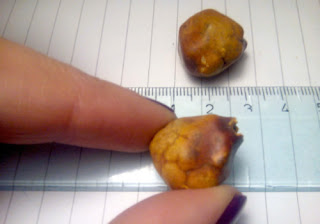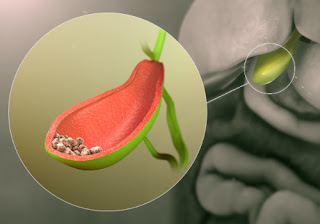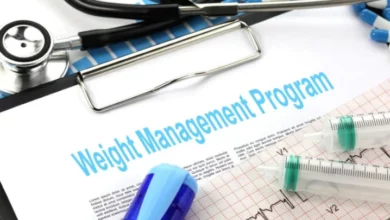10 Warning Signs and Symptoms of Gallbladder Stones

Looking for signs and symptoms of gallbladder stones? Gallbladder stones are hard crystallized components that are one of the most common health troubles triggering millions of people worldwide.
Our gallbladder is a small organ that appears like a pear fruit located on the right side beneath our liver. The gallbladder is responsible for adjusting the bile fluid that helps in breaking down the fat components.
The gallbladder can cause serious health problems and mostly need to operate to remove. It causes excessive abdominal pain and inflammation, and other symptoms.
What causes Stones in Gallbladder

1. Too much cholesterol in the bile
Bile has many chemicals that help in cholesterol absorption in the body, and when you have gallbladder stones, it affects the functioning of the liver. It produces more cholesterol that bile can’t dissolve.
The increased cholesterol is shaped in hard crystals in the form of stones.
2. Excessive Bilirubin
When red blood cells break down, then they release a chemical called bilirubin. And when the liver process gets affected due to specific issues, it forces excess production of bilirubin that can cause gallstones in the body.
3. Bile gets concentrated due to can’t empty properly
The gallbladder must empty properly, and when it doesn’t happen, it increases the risk of gallbladder stones.
Signs and Symptoms of Gallbladder Stones

Here we are listing 10 warning signs and symptoms of gallbladder stones and related information, so let’s have a closer look at that:-
1. Constant Stomach Pain
When gallbladder stone gets stuck there or starts moving with the bile, it can be unbearable and painful, and sometimes emergency surgery is being performed.
The person may feel constant abdominal pain and inflammation that can last for a few hours. Sometimes you may feel pain after eating on the right side of the abdomen.
People feel that pain killers don’t help much, so gallbladder stones are a significant sign and symptom.
2. Nausea and Vomiting
Nausea and vomiting are the other sign of gallbladder stone. The contraction in the gallbladder and blocked bile duct can cause nausea and vomiting.
Patients may also feel dehydration and abdominal discomfort, and sometimes condition gets worse.
3. Heartburn
Heartburn is normal whenever you eat unhealthy food, but it is a sign of gallbladder stone too. If you feel heartburn whenever you eat your meal and acid reflux and cramping in the stomach that doesn’t feel normal, you mustn’t ignore it.
It can be an indication of gallstone growing in the body.
4. Jaundice
Pale and yellow skin or also called jaundice, is a sign of liver problems. Jaundice in adult people can be a prior sign and symptom of gallbladder stones, and you mustn’t ignore this.
The stuck gallstone in the bile duct forces the bilirubin to move backward in your liver and causes dark urine color and yellowish eyes and skin.
5. Sudden Weight Changes
People with heavy weight are more prone to developing gall balder stones as they consume more cholesterol and fatty meal. Obesity is the hub of various diseases, and many other causes can make you obese.
That sudden weight loss can also enhance the risk of gall bladder stones because the digestive function gets disturbed, which affects the whole process.
6. Bloating
People who feel constant bloating even they are eating healthy food can be diagnosed with gallbladder stones. Sometimes a patient may think that it is normal bloating, but it’s not.
If you notice rapid changes in your bowel movement and always feel bloated, you must consult an expert.
7. Fever
Fever is widespread and always informs us that something is not well in the body and we must listen to it. The pain and inflammation in the abdomen and discomfort make the gallstone infected causes fever and high temperature of the body.
8. Diarrhea
The long-term stability of gallbladder stones can give you severe diarrhea. It happens due to disturbed bile duct, and natural intestine functioning gets interrupted.
The fat doesn’t digest properly and flows in the large intestine that becomes the main reason for diarrhea.
9. Dark Urine and Light stools
If you have sufficient water, you still notice urine color looks quite dark. It can be a sign and symptom of gallbladder stones.
Bilirubin is responsible for urine color and stool color, and when it doesn’t work properly, suddenly, you may feel that urine color has been changed and become darker, and stool color becomes light.
You must consult a doctor without any delay before the condition gets worse.
10. Chills
Just like fever, chills are also related and indicate the mishap of the body. If you feel sudden chills and sweating, and body discomfort, then you must notify the sign.
Risk factors for Gallbladder Stones

- Pregnancy
- Liver diseases
- Females are more prone to
- Older than 40
- Overweight
- Consuming a diet rich in fat and cholesterol
- Heredity
- Diabetes
- Hormonal imbalance
- Sudden weight loss
- Anemia
Gallbladder Stone Prevention

1. Maintain your Weight
Obesity is one of the reasons that can enhance the risk of gallbladder stones. Avoid such fatty food and try to maintain weight.
If you want to lose weight, then don’t accept rapid weight loss techniques. Lose weight slowly and add exercise that can help more.
2. Never Stay Hungry for a Long Time
Skipping a meal is not a good idea and can increase the risk. So don’t stay hungry for a long time and eat in small portions.
3. Add more Fiber to the Diet
Lack of fiber is also a significant cause of gallbladder stones so add more fiber to your routine. Eat more veggies, nuts, and fruits, and grains loaded in fiber.
Avoid junk food and processed food and drink enough water.
Be sure to read: How to dissolve gallstones naturally
In Closing
Now you know well about the signs and symptoms of gallbladder stones and how to prevent them. Gallbladder stones can be common until they don’t allow you to perform the surgery process.
You must notify the symptoms and ask for a proper diagnosis. We hope this information will be helpful for you. If you have any queries or any doubts, you can ask.
Share this information more and your reviews as well.
Read Next
Trusted Sources
- Laparoscopic enterolithotomy for gallstone ileus.[1]
- Coffee consumption and the risk of gallstone disease[2]
- Gallstones: new insights into an old story[3]
- Diagnosis and treatment of gallstone disease[4]
- Pathogenesis of gallstones[5]
- Analysis of stones formed in the human gall bladder[6]
- Critical Care Aspects of Gallstone Disease[7]





